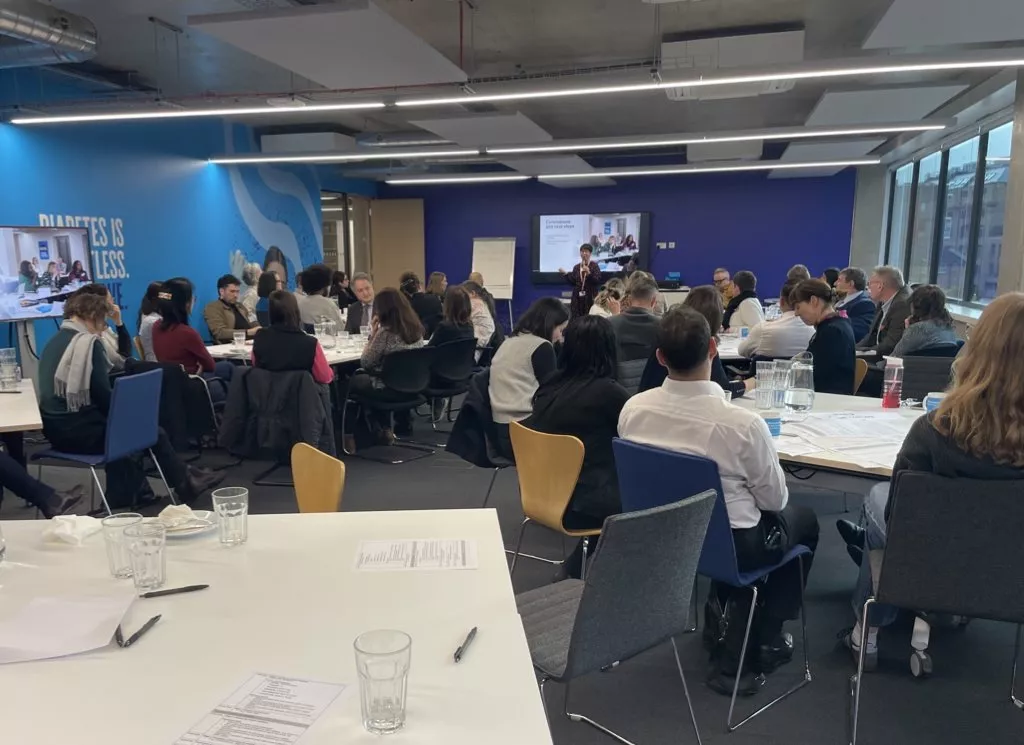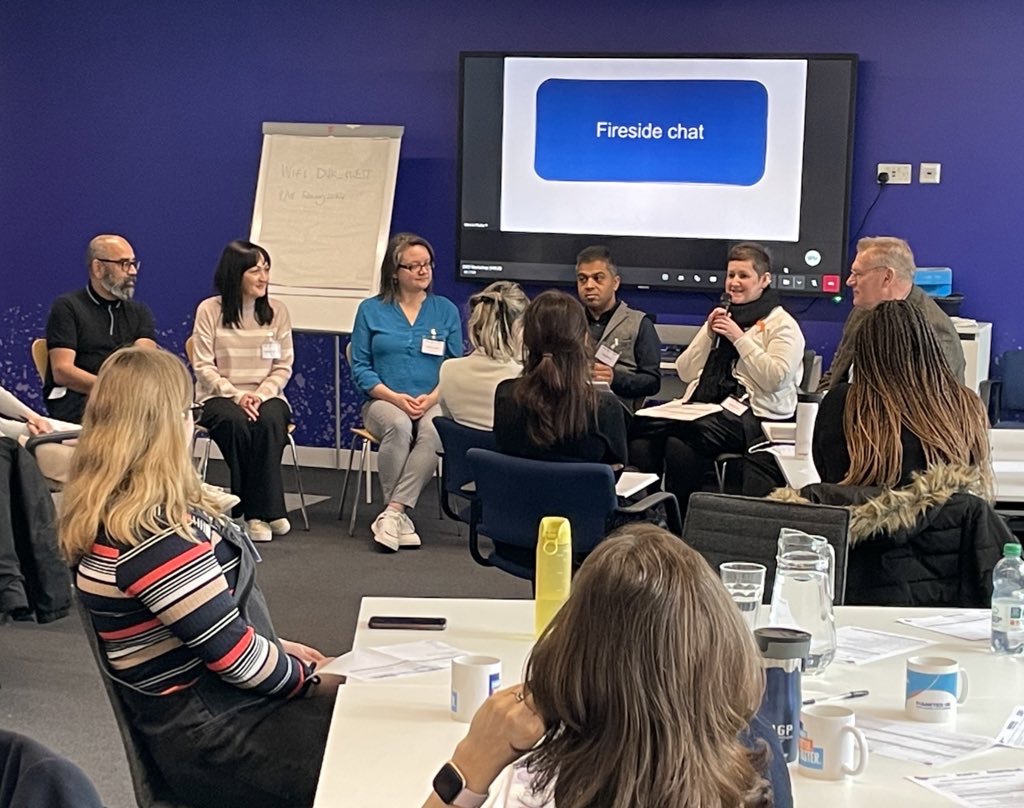
Diabetes is the leading cause of kidney disease in the UK, so we have joined forces with JDRF UK and Kidney Research UK to identify the research gaps and care needs in the field.
Diabetes can damage the blood vessels in the kidneys and impair their function, leading to the development and progression of kidney disease.
Many people living with diabetes can experience kidney disease, with one in five people with diabetes needing treatment for it during their lifetime. Diabetes is also a leading cause of end-stage kidney disease, with almost one in three people who need dialysis or a kidney transplant having diabetes.
These statistics, outlined in Kidney Research UK’s Health Economics report on kidney disease, are striking, so we are joining forces with JDRF UK and Kidney Research UK are joining forces to tackle the issue.
We share a common interest in preventing people with diabetes from experiencing kidney damage, by detecting kidney disease early, slowing its progression, and developing kinder and more effective treatments for it.
Partnering for change
The three research charities have come together to drive forward our understanding of the gaps in research into diabetes and kidney disease, and spot opportunities for future research.
This partnership has a particular appreciation of the need for translational research, transforming scientific discoveries into real life benefits quickly, with people with lived experience of these health conditions at its heart.
We invited experts in diabetes and kidney disease, including academics, clinicians, and people with lived experience to a workshop.
The day began with an introduction by the workshop co-chairs Professor Claire Hills, Professor in Renal Physiology at the University of Lincoln, Sanjay Mistry, who is a kidney and pancreas transplant recipient, and Dr Kieran McCafferty, Consultant Nephrologist at Barts Health National Health Service Trust.
Hearing from experts by experience

We heard findings from surveys and focus groups of people with lived experience of diabetes and kidney disease. This was followed by a panel discussion of people with lived experience, chaired by Sanjay.
This session gave us valuable insights into the research priorities of people, to help inform our strategy. The consensus from the panel was that there is a lack of joined-up care across different health services and that people are often made to feel blame and guilt for developing kidney disease as a result of their diabetes.
A clinical perspective
Then, Dr Janaka Karalliedde, Clinical Reader in Diabetes and Cardiovascular Disease at King’s College London, discussed his perspective as a clinical researcher.
He highlighted gaps in care and shared that identifying diabetic kidney disease is the best marker that someone may be at risk of other complications of diabetes, demonstrating the wider impact of improving early detection and care in this area.
Delving into the biology
Next to take the stage was Professor Anna Solini, Associate Professor in Internal Medicine at the University of Pisa, who set the scene in the world of lab-based research. Prof Solini explored the complicated biology underpinning diabetic kidney disease, and explained current and emerging treatments against kidney damage.
The role of industry
These speeches were followed by an insightful session on the role of industry in research by William Cole, Life Sciences Partnership Manager at Kidney Research UK.
William emphasised the need for charities to collaborate and work strategically with industry to drive new research and accelerate the translation of this research into successful treatments to help people with diabetes and kidney disease.
Establishing research questions
The next session began with breakout groups pinpointing research questions for scientists to explore in the future. After feeding back to the room and networking over lunch, we worked together to refine the research questions, which focused on six overarching themes:
- Causes
- Diagnosis
- Prevention
- Treatments
- Day-to-day management
- Improved care.
Next steps for the partnership
Now, the three organisations will draft an article together, summarising the outcomes of the workshop. We’ll share it at the Diabetes UK Professional Conference 2024, to help bring in more investment and get researchers working on this issue sooner.
We urgently need to change the story about diabetes and kidney disease. This partnership is the first step towards a new narrative where fewer people with diabetes experience kidney damage, and those who do can access less invasive treatments that make a real difference to the progression of kidney disease.
We are raising the voices of people living with diabetes and its complications, accelerating focused research fuelled by collaboration, and championing coordinated care pathways, which could transform the quality of life of people with diabetes and kidney disease.
